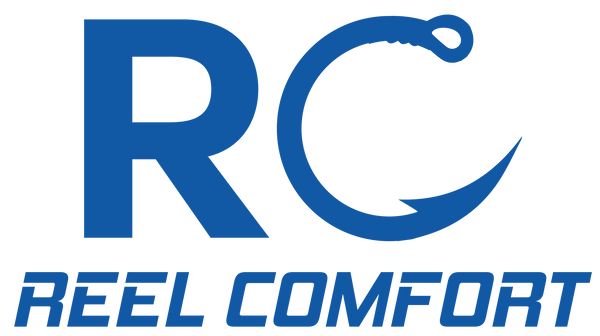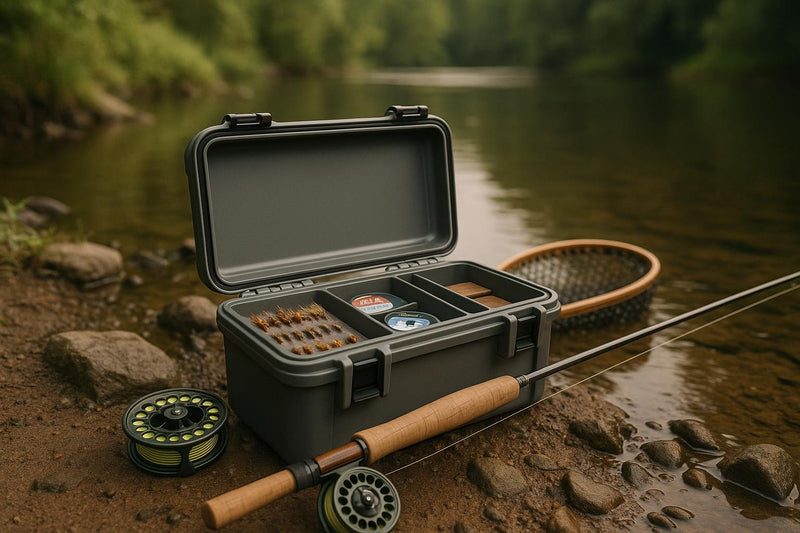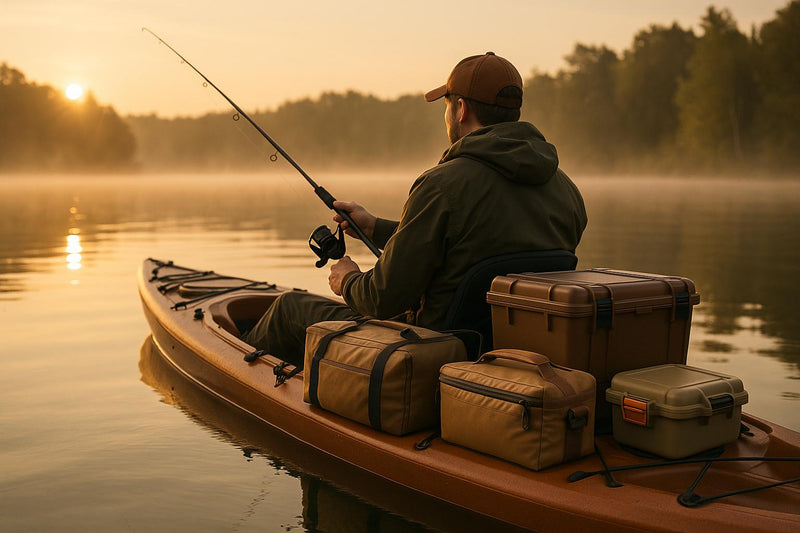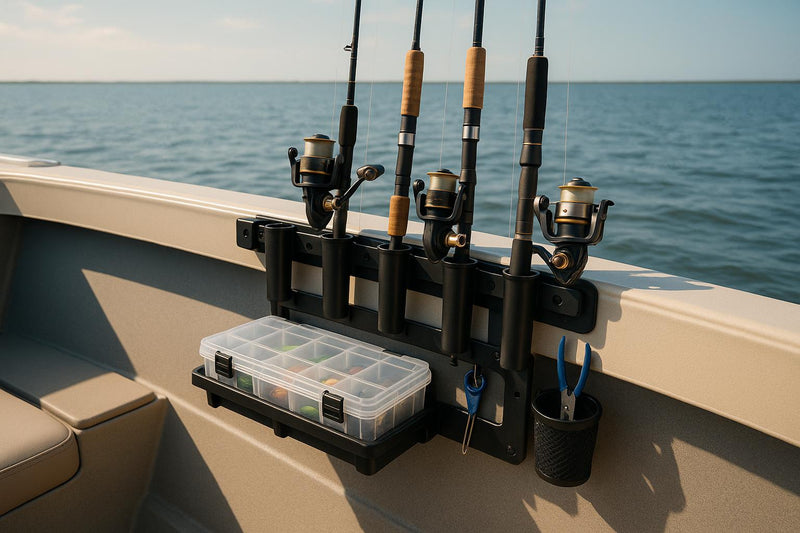When you're out fishing, having reliable power is crucial to keep your boat's systems running. Marine solar panels are a smart solution, designed to handle harsh conditions like saltwater, UV rays, and moisture. They help power navigation tools, fish finders, lights, and more - while reducing fuel dependency.
Here’s a quick look at the top options:
- EcoFlow 400W Portable Solar Panel: High-power output, foldable design, and durable build for larger boats.
- Renogy 100W Foldable Solar Suitcase: Affordable, compact, and easy to set up with a built-in charge controller.
- SunPower Flexible Marine Solar Panels: Lightweight and ideal for curved surfaces with high efficiency.
- Jackery SolarSaga 100W: Lightweight and portable for smaller power needs.
- Eco-Worthy Marine Solar Panels: Budget-friendly, durable, and good for permanent installations.
To choose the right panel, consider your boat's power needs, available space, and whether you prefer portable or fixed panels. Pairing these panels with proper installation and maintenance ensures a safer, more efficient fishing experience.
What to Look for in Marine Solar Panels
Marine solar panels face tough conditions - salt spray, moisture, UV rays, and temperature swings. To provide dependable power in these environments, they need to be specifically designed for durability and performance. Below, we break down three key factors to consider: waterproofing, efficiency, and portability.
Waterproof and Corrosion Resistance
When you're out on the water, keeping your solar panels safe from moisture and corrosion is non-negotiable. Look for panels with IP67 or IP68 ratings, which ensure protection against water exposure and even submersion. Without this safeguard, water can seep into the connections, leading to mold, corrosion, or even short circuits.
Saltwater adds another layer of complexity. It can trigger galvanic corrosion when different metals come into contact with it, effectively turning your panel into a self-draining battery. To combat this, choose panels with marine-grade anodized aluminum frames and ETFE coatings. These coatings not only resist UV damage but also help shed salt and dirt naturally. For added durability, many rigid panels use tempered, low-iron glass, which improves light transmission while standing up to impacts from waves or floating debris.
Power Output and Efficiency
Space is often at a premium on boats, so efficiency matters. High-efficiency panels produce more power from less surface area, making them a smart choice when deck space is limited. Monocrystalline panels are particularly effective in partial shade, while polycrystalline panels may require more room to achieve the same output. When comparing options, think about how much power you need and how much space you can dedicate to your solar setup.
Portability and Installation
On a boat, flexibility and ease of installation can make all the difference. Lightweight and adaptable designs allow you to get power when and where you need it most. Rigid panels are ideal for fixed installations, but if you need something more versatile, flexible panels can conform to curved surfaces. Some models even fold up for compact storage or come with built-in charge controllers for extra convenience.
For quick adjustments or temporary setups, look for panels with suction cups, clamps, or magnetic mounts. To ensure a reliable connection, use marine-grade cables with UV-resistant insulation and waterproof connectors, which help minimize voltage drops and keep your system running smoothly.
Best Marine Solar Panels for Anglers
After testing various models under actual fishing conditions, we’ve identified the best marine solar panels for powering essential fishing electronics. These panels excel in durability, efficient energy output, and ease of installation - key features for withstanding the tough conditions of marine environments. Below, we dive into the standout options that meet these criteria.
EcoFlow 400W Portable Solar Panel
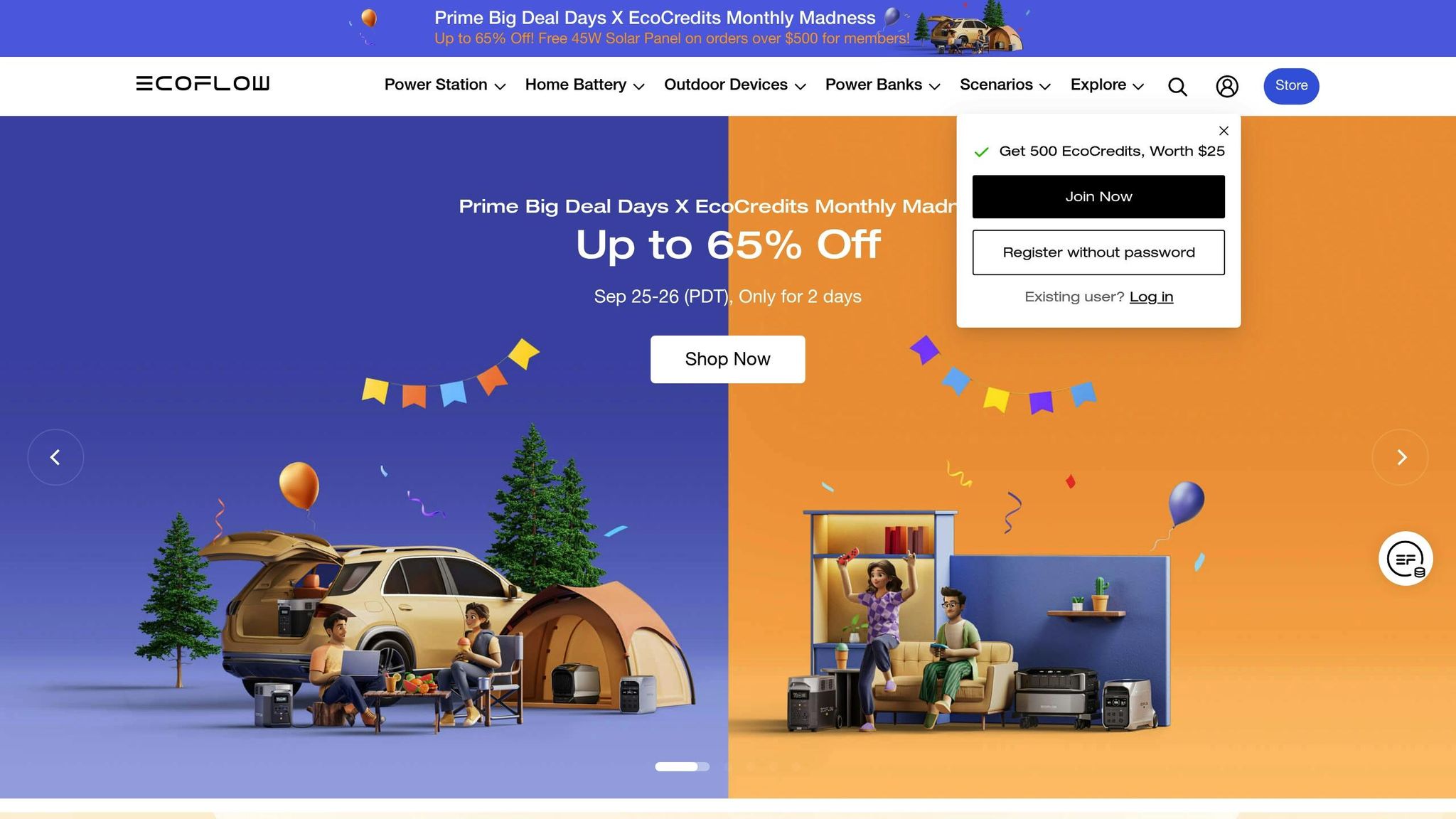
The EcoFlow 400W is a top choice for anglers needing serious power. This bifacial panel captures sunlight from both sides, boosting efficiency compared to standard single-sided panels. Its foldable design makes it surprisingly compact for a 400W unit, and the adjustable kickstand helps you optimize sun exposure throughout the day.
Built to handle marine challenges, it features waterproof MC4 connectors (IP68 rated) and an ETFE coating that resists salt spray and debris. Weighing 35.2 lbs, it’s best suited for boats with plenty of deck space. Plus, the built-in smart chip automatically adjusts voltage output to protect sensitive electronics, whether you’re using a 12V or 24V battery system.
Renogy 100W Foldable Solar Suitcase
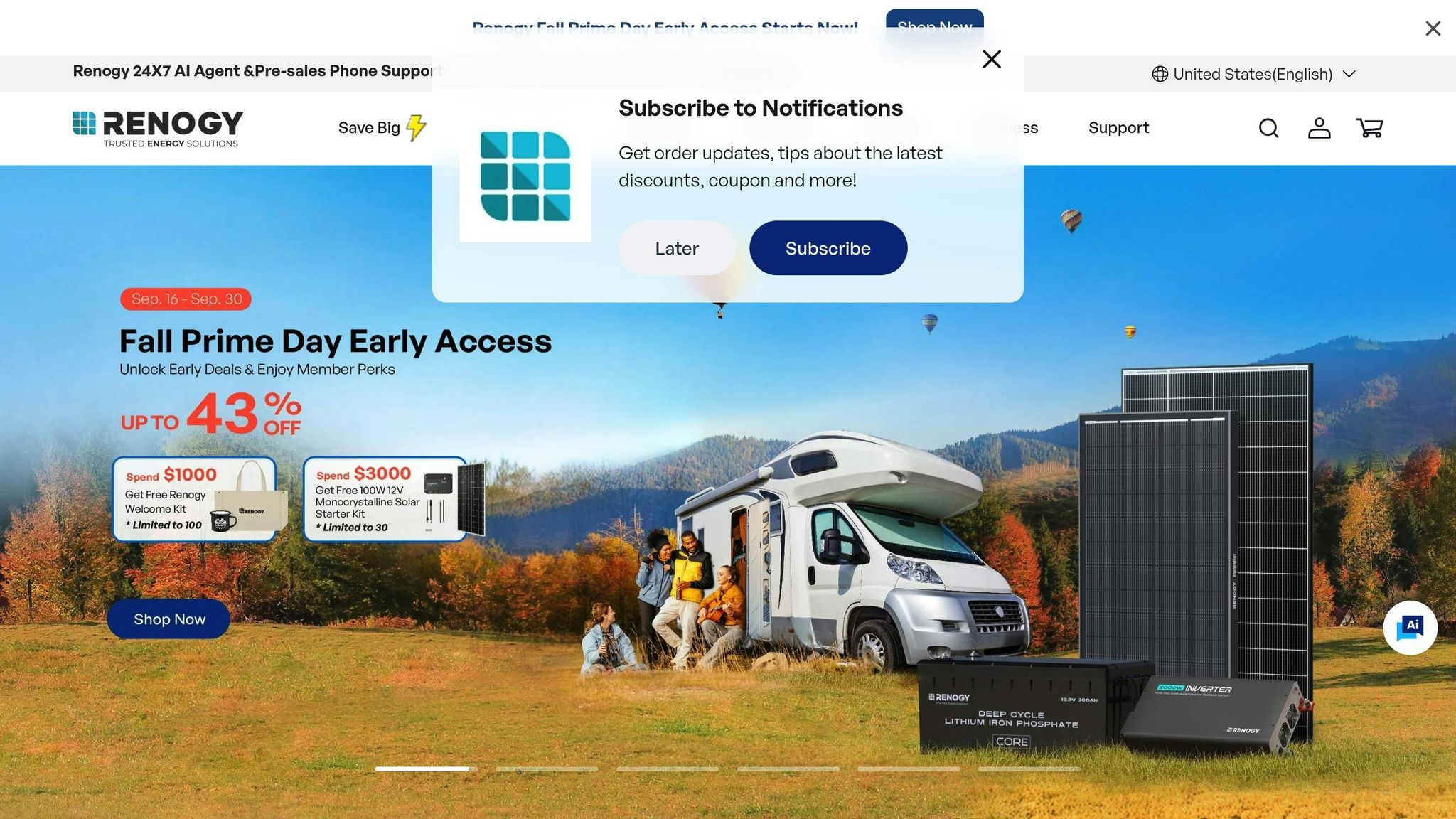
If you’re looking for a budget-friendly option, the Renogy 100W Solar Suitcase delivers excellent value at around $180. It comes with a built-in 30A PWM charge controller, simplifying setup for anglers who want an easy-to-use solution. The suitcase design folds flat for convenient storage, and its adjustable aluminum legs provide stability even on uneven boat surfaces.
The panel’s 10-foot pre-installed cable and alligator clips make installation quick and hassle-free. Built with tempered glass and a marine-grade anodized aluminum frame, it resists impacts and corrosion. At 26.6 lbs, it’s light enough for one person to handle, making it a practical choice for smaller boats.
SunPower Flexible Marine Solar Panels
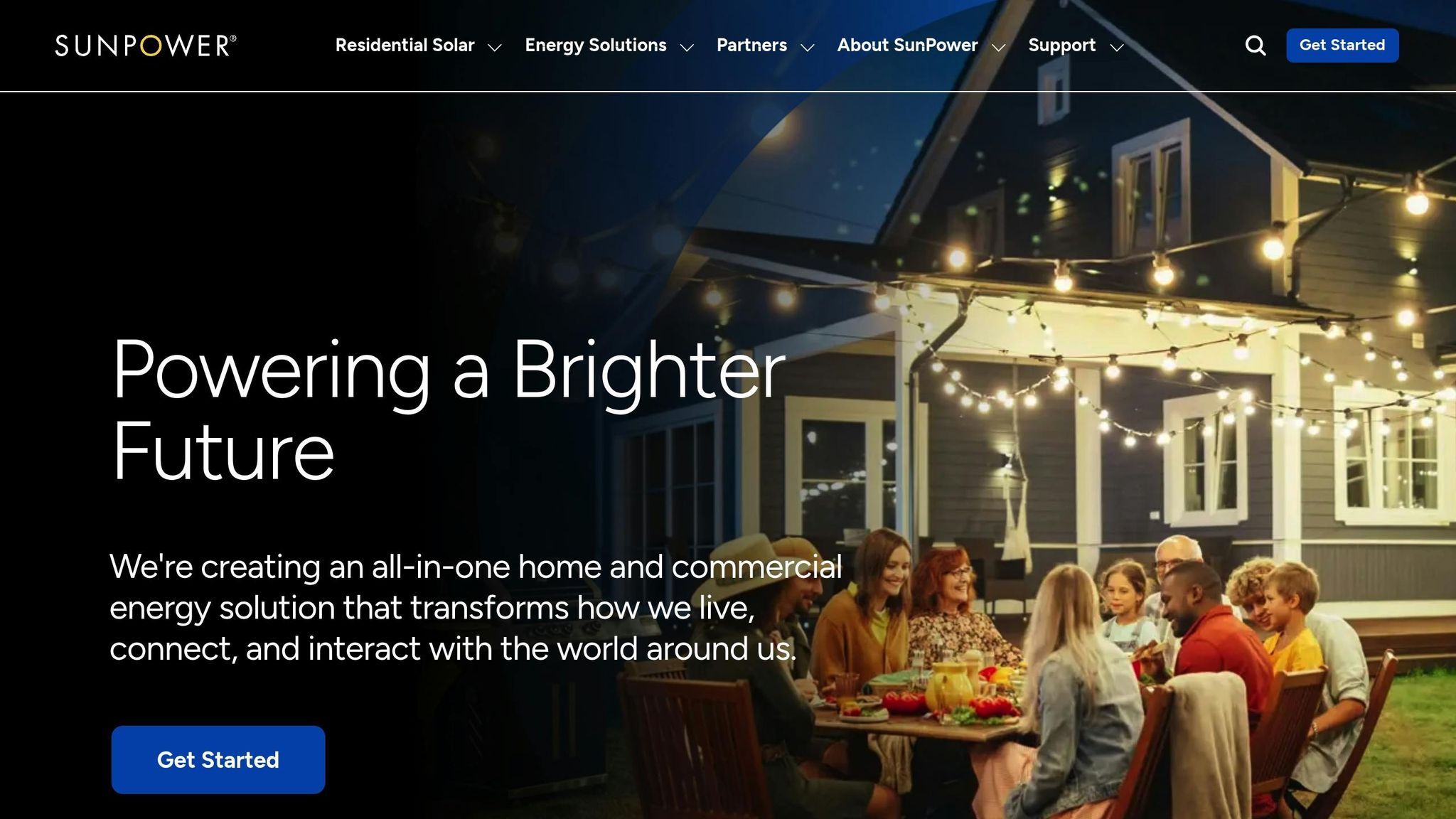
For boats with curved surfaces or limited flat space, SunPower Flexible Marine Solar Panels are a perfect fit. These panels can flex up to 30 degrees, allowing them to adhere to hardtops, bimini tops, or cabin roofs with ease. Thanks to Maxeon cell technology, they achieve an impressive efficiency of about 22.8%, making them a leader in the flexible panel category.
Their ultra-thin, lightweight design (just 4.2 lbs per 100W) minimizes wind resistance, even at high speeds. Installation is straightforward using marine-grade adhesive or grommets, and their durability ensures they can handle the wear and tear of regular boating activities.
Jackery SolarSaga 100W Solar Panel
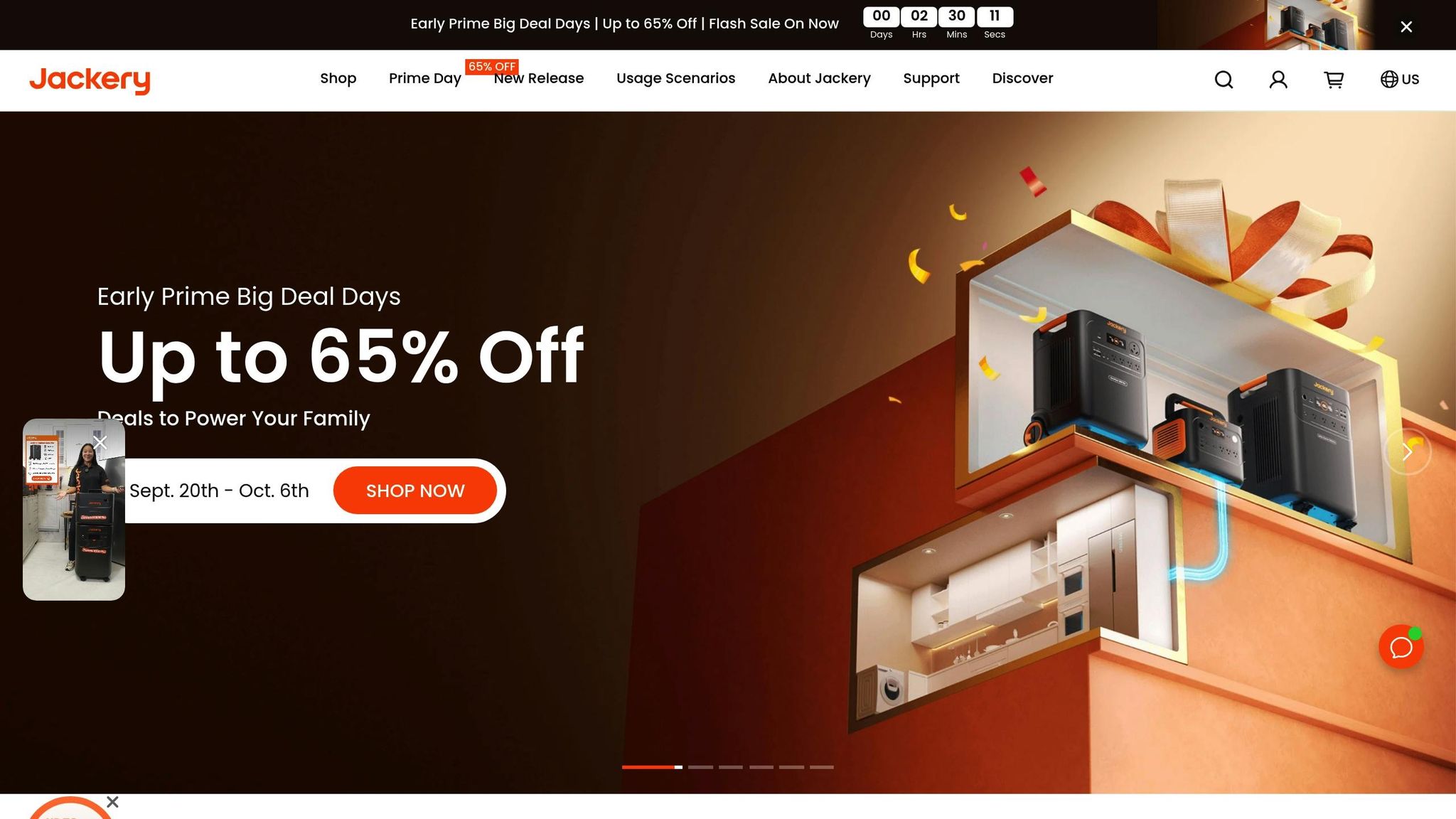
The Jackery SolarSaga 100W is ideal for anglers who value portability. Designed for grab-and-go use, this panel weighs just 9.1 lbs and features an integrated carrying handle, making it easy to transport between your vehicle and boat. The foldable design ensures compact storage, while the ETFE coating enhances light transmission and resists UV damage and salt corrosion.
With dual kickstands for angle adjustments and compatibility with Jackery power stations or any 12V battery system via the included Anderson connector, this panel is versatile and reliable. Its IP65 rating protects against spray and light rain, and the compact 24" x 21" size makes it a great option for weekend fishing trips.
Eco-Worthy Marine Solar Panels
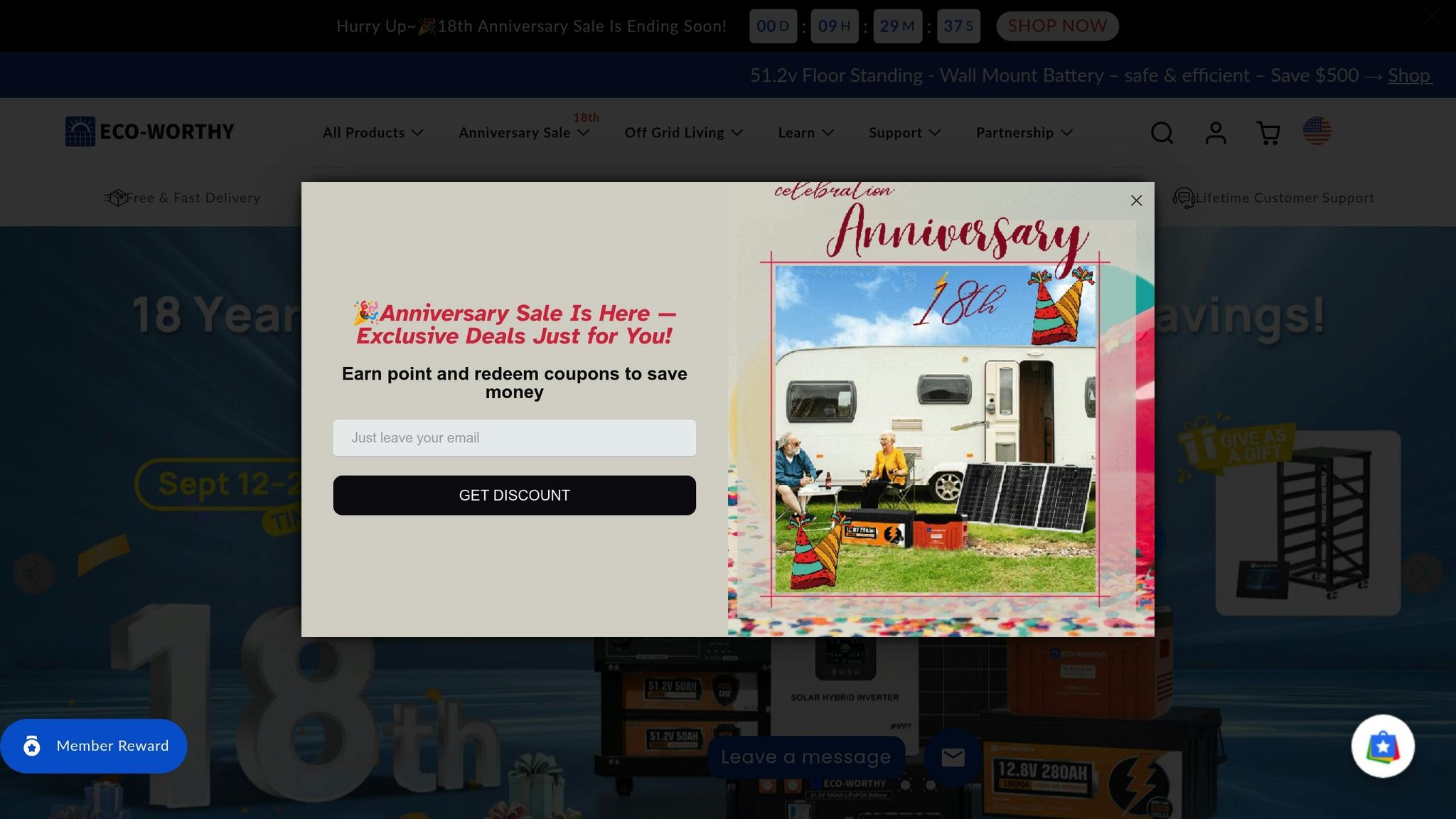
For anglers seeking a sturdy, budget-conscious option for permanent installations, Eco-Worthy Marine Solar Panels are a solid pick. These 100W monocrystalline panels are priced around $120 and offer dependable performance. The pre-drilled aluminum frame simplifies mounting, and waterproof MC4 connectors ensure secure, weather-resistant connections.
The tempered glass surface provides durability while maintaining excellent light transmission. With an efficiency rating of about 18.1%, these panels may not be the most efficient, but they’re backed by a 25-year power output warranty and a 5-year material warranty. Whether you need to power fish finders, livewells, or charge devices, these panels offer reliable, cost-effective energy for your boat. Plus, they can be connected in series or parallel to meet different energy needs.
These options combine durability, functionality, and ease of use, making them excellent choices for anglers looking to stay powered on the water.
Marine Solar Panel Comparison Chart
Here's a breakdown of some popular marine solar panels, focusing on their power output, ease of installation, and durability.
| Solar Panel | Key Pros | Main Cons |
|---|---|---|
| EcoFlow 400W Portable | High power output with a sturdy build | Heavier design that requires significant deck space |
| Renogy 100W Suitcase | Affordable option with a built-in charge controller | Lower power output compared to other options |
| SunPower Flexible Marine | Lightweight and flexible - perfect for curved surfaces | Needs careful installation and secure mounting |
| Jackery SolarSaga 100W | Extremely portable and easy to handle | Best for light power needs |
| Eco-Worthy Marine | Budget-friendly with a long-term warranty | Basic features and lower efficiency |
When selecting a marine solar panel, think about your boat's power demands, the amount of deck space available, and whether a portable or fixed setup fits your needs better. Each panel offers a unique balance of efficiency, durability, and installation simplicity.
For a seamless fishing experience, pair your reliable solar setup with high-quality angler gear. Check out our premium Fishing shorts and Mens Fishing Shorts to stay comfortable while reeling in your catch.
sbb-itb-cb0a783
How to Connect Solar Panels to Boat Systems
To get the most out of your marine solar panels, proper integration with your boat’s systems is key. A complete setup includes a portable power station, inverter, charge controller, and batteries to power your boat’s appliances effectively.
Understanding Your Boat's Power Requirements
Start by figuring out how much energy your boat actually needs. Make a list of all the devices you use onboard - like fish finders, GPS units, live wells, lights, radios, and charging ports. Note the wattage of each device and estimate how many hours you typically use them during a day out on the water. This step is crucial for determining the right size for your solar system.
Choosing Between Integrated Kits and Custom Systems
You have two main options when setting up your solar system: integrated kits or custom setups. Integrated kits, like the EcoFlow Power Kit, are modular and plug-and-play, including components such as a solar battery, inverter, and charge controller in one package. If your boat has specific power needs or a unique layout, a custom system might be a better fit. In these cases, working with a marine electrician can help you design a system tailored to your requirements. This is especially important if you’re using lithium batteries or need to connect to multiple systems on your boat.
Installation Best Practices
For the best performance, mount your solar panels where they’ll get the most sunlight throughout the day. Avoid placing them in spots where shadows could fall on the panels, as even partial shading on one cell can cut power output by 20% or more. Use marine-grade connectors to secure all wiring and ensure connections stay dry and free from corrosion. Route cables through existing tracks when possible, add fuses or circuit breakers for safety, and label all connections to make future troubleshooting easier.
Maintenance for Peak Performance
Keeping your solar panels clean is essential for maintaining efficiency. Regular cleaning can increase energy production by up to 20%. Aim to clean your panels every six months - or every three months if you’re in a dusty area - using fresh water and a soft cloth. While you’re at it, check connections and mounts for any signs of corrosion. Consistent maintenance can boost overall energy production by about 15%.
Additional Considerations
If you plan to expand your solar system to power additional onboard accessories, make sure your system can handle the extra load without exceeding its capacity. Keep an eye on your panel performance regularly to catch and address any issues early. A well-monitored system ensures smooth and efficient operation for all your boating adventures.
Comfort Gear for Anglers: Reel Comfort Fishing Shorts
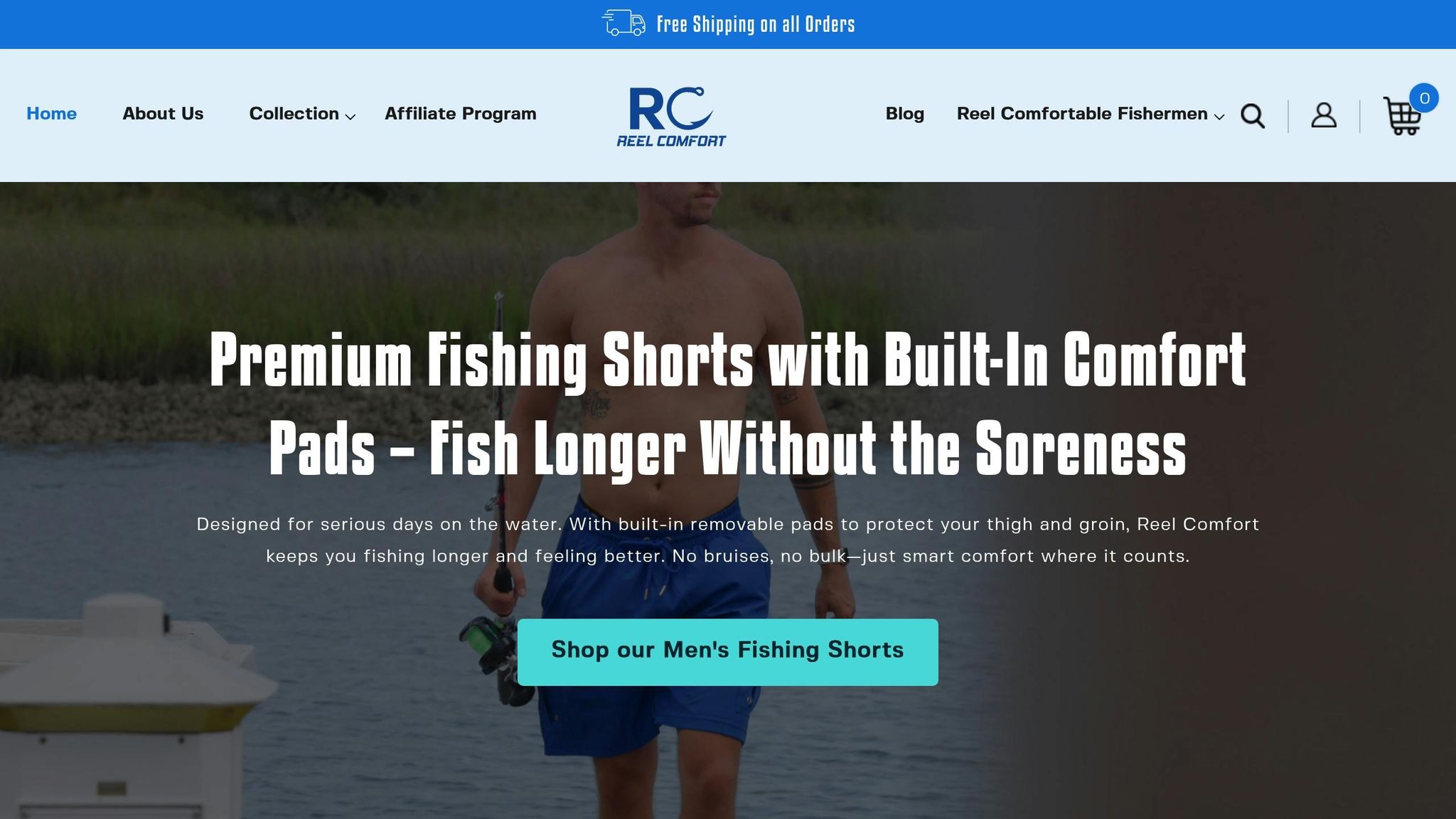
When you're spending long hours out on the water, reliable tools and comfortable clothing are a must. Just like solar panels power your boat's systems, the right gear keeps you ready to tackle whatever the day throws your way. A solid pair of fishing shorts, like those from Reel Comfort, ensures you stay comfortable and agile during those marathon fishing sessions.
Built for Long Days on the Water
Reel Comfort's fishing shorts are designed with anglers in mind. They feature removable thigh pads that provide essential support for fishing rods, helping to ease fatigue during those epic battles with fish. The quick-drying, water-resistant fabric keeps you comfortable even when the waves splash over the deck. Plus, the four-way stretch material and anti-chafe seams ensure unrestricted movement, whether you're casting, reeling, or navigating tight spaces on your boat.
Smart Design Meets Practical Features
These shorts aren't just about comfort - they’re packed with practical features. Deep hand pockets, a secure zippered back pocket, and slim thigh-pad pockets give you plenty of storage without adding unnecessary bulk. Available in four classic colors - Black, Gray, Blue, and Tan - you can pick the pair that matches your style. Sizes range from Small to XX-Large, ensuring a fit for everyone.
One satisfied customer raved about the XX-Large blue shorts, highlighting their lightweight, breathable fabric and comfortable fit, even after hours of wear. With thoughtful design and dependable performance, these shorts have become a favorite among anglers.
How to Get Your Reel Comfort Fishing Shorts
You can grab your own pair of fishing shorts directly from Reel Comfort's official website for $59.99. The site also offers free shipping on all orders, making it easy to get your gear delivered right to your door. Prefer shopping on Amazon? They're available there too, boasting a perfect 5.0-star rating based on customer reviews.
For more details, check out their guide on padded fishing shorts vs regular shorts to see why specialized fishing apparel makes a difference. Curious about eco-friendly options? Learn how some fishing shorts are crafted from recycled nets, contributing to ocean conservation.
Whether you're reeling in a trophy catch or navigating rough waters, having the right gear ensures you can focus on what matters most - landing the big one.
Conclusion: Better Fishing with the Right Equipment
Reliable marine solar panels are a game-changer for powering essential systems and improving your fishing trips. For instance, a 100W solar panel can generate around 300–500 Wh daily, keeping your navigation and communication tools running smoothly during extended outings. This consistent power supply ensures a safer and more productive time on the water.
These panels also offer long-term benefits. With a lifespan ranging from 5 to 25 years, they help reduce fuel expenses and minimize engine wear. Modern monocrystalline panels, with efficiencies reaching up to 24.4%, make the most of limited deck space, ensuring you get maximum energy output.
But fishing isn’t just about the gear on your boat - it’s also about your comfort and focus. As dependable solar panels power your vessel, high-quality fishing apparel keeps you comfortable and ready for action. Take, for example, Men’s Fishing Shorts that are quick-drying, water-resistant, and equipped with padded support for your rod. Combining advanced solar technology with thoughtfully designed gear means you can enjoy longer, more comfortable days on the water. For your next adventure, check out Reel Comfort's premium Fishing Shorts - because every piece of equipment plays a role in elevating your fishing experience.
FAQs
How can I choose the right marine solar panel size and type for my boat's power needs?
To choose the best marine solar panel for your boat, begin by calculating your daily energy needs and checking your battery's capacity. For instance, a 30-foot boat might need about 350 watts of solar power to handle its typical electricity usage. Be sure to take into account factors like how much sunlight your area gets, the efficiency of the panels, and their ability to endure tough marine conditions. Rigid panels are often favored because they’re durable enough to handle rough seas while delivering steady power.
By matching your boat's energy demands with the right panel type and considering environmental factors, you can set up a solar system that keeps your power supply dependable during your adventures on the water.
What are the advantages of using flexible solar panels on boats?
Flexible solar panels are an excellent option for boats thanks to their lightweight build and ability to bend and fit onto curved surfaces. This makes them simple to install on different areas of a vessel. Plus, they’re built to resist rust and corrosion, which is crucial for handling the harsh conditions of marine environments.
Although they might not match the efficiency or durability of rigid panels, their versatility and convenience make them a smart choice for many boaters who want to power their marine electronics or accessories with ease.
What’s the best way to install and maintain marine solar panels for top performance and durability?
To maximize the performance of your marine solar panels, start by opting for marine-grade connectors and tinned copper wiring. These materials are designed to resist corrosion, ensuring dependable functionality even in harsh marine environments. Securely mount the panels to withstand rough waters and position them carefully to minimize shading, as shadows can drastically cut down their efficiency.
When it comes to maintenance, inspect the panels regularly for any signs of cracks, discoloration, or corrosion. Keep them clean by using a soft cloth and mild soap to remove dirt, salt, or debris that might block sunlight. With the right installation and regular upkeep, marine solar panels can serve you well for anywhere between 5 and 25 years, depending on their quality and how well they’re maintained.
